“I never dreamed that boy would be President,” Mrs. Norah Fuller said on Saturday. And probably he didn’t either. She was recalling the time when “President Kennedy slept here” in her Main street, Edgartown, home.
“He looked thin and tired,” she remembered of the summer regatta weekend—just what year she can’t pin down—when he showed up looking for a room, “and he was sort of bent”. This apparently refers to the famous back trouble, aggravated by Lieutenant Kennedy’s war-time experiences in the South Pacific when he was in command of the ill-fated PT-109. Mrs. Fuller considers his present appearance as “strong and robust” in comparison.
A Things Insular piece in last week’s Gazette brought Jack Kennedy’s Edgartown regatta visits to attention, and a Page One “fullface” wondered where he stayed. This was in question no longer than shortly after 1 p.m. on Friday when Miss Olive Hillman read the fullface and called the Gazette. She remembered Mrs. Fuller this last summer speaking of the Kennedy stay.
However, Mrs. Fuller is inclined to believe that Mr. Kennedy’s visit to her house was post-war, since she and her daughter, Mrs. Catherine Gay, relate it in reference to her son’s war service and the building of her cottage.
Mrs. Fuller remembers the then comparatively unknown young man because at the time two of his brothers and two of his ‘sisters, with a chaperone, had the upstairs part of her house for five or Six days. Young Jack didn’t have a reservation but came along at regatta time with a friend, a Mr. McDonald, and asked if Mrs. Fuller could put them up, in the same house with his family.
“All I had,” Mrs. Fuller said “was the back bedroom off the kitchen. I suppose’ you Would call it my least desirable room, but it is comfortable, has a shower and lavatory and all conveniences. Well, they were perfectly happy with it.
“After the Saturday (regatta) races,” Mrs. Fuller continued, “I came over from my little cottage in back, and he was sitting on the back steps in the sun. He told me he had won a race, and then he asked if he could possibly have a cup of coffee.” (The race result can’t be verified by the Gazette files. Kennedys were in several post-war regattas, and while Jack raced in the 1947 events he didn’t do as well as in 1941.)
Response Was Hospitable
Hospitably, Mrs. Fuller more than gratified this request; she went back to her cottage, made a pot of coffee, some toast and squeezed orange juice. And young Mr. Kennedy was delighted.
The next morning Mr. Kennedy and the others of his family went to church, the same one, St. Elizabeth’s, Mrs. Fuller herself attends. At the house afterwards, she said, he asked her if she were a native.
Well, Mrs. Fuller said, she’d been here a long time, but she was born in Ireland.
Where in Ireland? he asked. And when she told, said he’d been there; it was a very pretty place. This was praise for Bantry, on Bantry Bay, in County Cork, warmly received and agreed with.
Mrs. Fuller also remembers the friendly handshake at parting. A very engaging young man, she recalls with pleasure,, and adds that the whole family group was a pleasant one, well behaved young people.
“Stuart (Corporal Fuller of the state police, her son) came in this morning,” Mrs. Fuller said, “and asked me if I’d seen the piece in the Gazette.” She thought young Kennedy stayed at the Colonial another year.
“I take people in to see this room, and I say, ‘You’d never guess who slept here’.” They make all kinds of wild guesses, she said, but never the right one. “When I tell them, ‘President Kennedy’,” she laughed, “some of them look as if I’d told a big fib!”

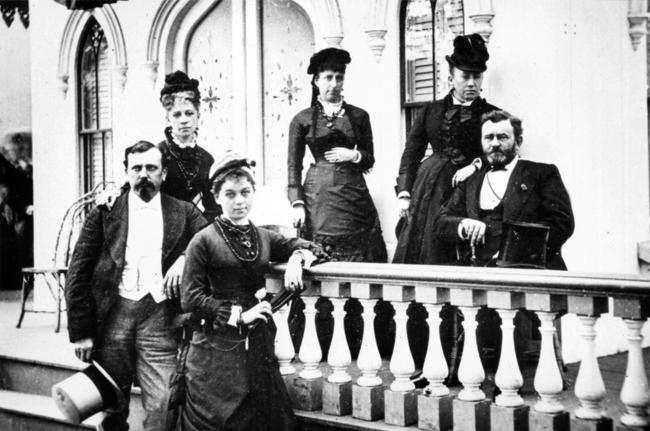




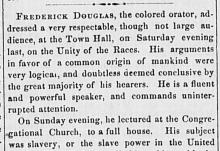
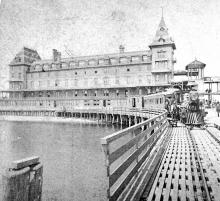
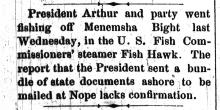
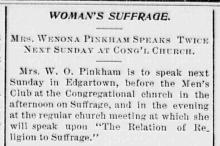
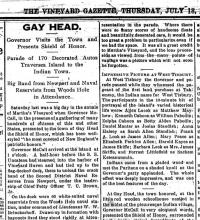
Comments